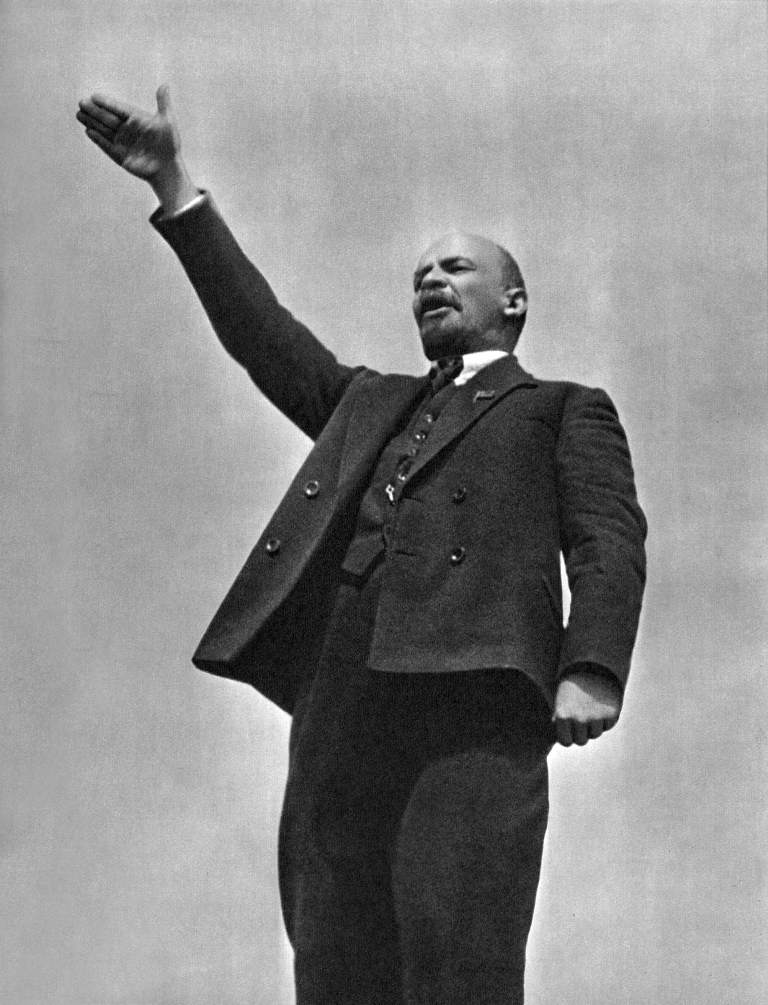Jucheguevara (talk | contribs) (linked to correct page) Tag: Visual edit |
Jucheguevara (talk | contribs) (added maintenance tag) Tag: Visual edit |
||
| Line 61: | Line 61: | ||
[[Category:Marxists]] | [[Category:Marxists]] | ||
[[Category:Marxist theorists]] | [[Category:Marxist theorists]] | ||
[[Category:Outline needs additional content]] | |||
Revision as of 06:20, 20 November 2021
Vladimir Ilyich Lenin Владимир Ильич Ленин | |
|---|---|
 Photo of comrade Lenin | |
| Born | Vladimir Ilyich Ulyanov 22 April 1870 Simbirsk, Russian Empire |
| Died | 21 January 1924 (aged 53) Gorki, Russian SFSR, Soviet Union |
| Nationality | Russian Soviet |
| Political orientation | Marxism (developed what is now known as Marxism-Leninism) |
Vladimir Ilyich Ulyanov[a] (22 April 1870 — 21 January 1924), also known as Vladimir Lenin, was a Russian revolutionary leader, political and economic theorist, philosopher and an important figure in proletarian history. He is often considered one of the most important figures of the 20th century and is a very relevant figure in the struggle for socialism. Author of several books contributing to Marxist theory, Lenin was responsible for the development of the understanding of the imperialist phenomenon in capitalist mode of production and was a key figure in the 1917 revolution that led to the establishment of the Soviet Union.
Life and work
Early life (1870–1889)
Vladimir Ilyich Ulyanov was born in Simbirsk[b] on 22 April 1870[c] from his father Ilya Ulyanov, a respected figure in public education and son of former serf, and his mother Maria Alexandrovna, from a family of nobility background.[1] Although Lenin's father was not a revolutionary himself, he shared progressive views and opposed autocracies, while his mother also contributed greatly with his intellectual upbringing. In May 1887, when Lenin was 17 years old, his brother Alexander Ulyanov was publicly executed for an attempt to assassinate the tzar Alexander III, and event which had an impact in Lenin's radicalization.[2]
Lenin was admitted to the Faculty of Law at Kazan University in 13 August 1886 and soon after he began his studies, he joined student campaigns and demonstrations against a legal act which prevented students from lower social classes to join and on December 1886, he was arrested for his participation in the student demonstrations. Throughout 1888–89 he studied for the first time Marx's Capital, vol. I and in September 1889, his family moved to the city of Samara, where Lenin joined a socialist discussion and study group, beginning his political and revolutionary activities.[3]
Early revolutionary activities (1889–1904)
Revolutions in Russia (1905–1917)
Soviet government (1918–1923)
Declining health and death (1923–1924)
Works
The development of capitalism in Russia (1899)
What is to be done? (1901)
Materialism and empiriocriticism (1909)
Imperialism, the highest stage of capitalism (1916)
The state and revolution (1917)
“Left-wing” communism: an infantile disorder (1920)
Bibliography
- Institute of Marxism–Leninism of the CC CPSU (1983). Lenin: a biography. Moscow: Progress Publishers. [LG]
References
- ↑ Tamás Krausz (2015). Reconstructing Lenin: an intellectual biography: 'Family'. ISBN 9781583674499 [LG]
- ↑ Robert Service (2000). A biography of Lenin: 'Deaths in the family'. ISBN 9780333726259 [LG]
- ↑ Tamás Krausz (2015). Reconstructing Lenin: an intellectual biography: 'Education'. ISBN 9781583674499 [LG]
Notes
- ↑ Russian: Владимир Ильич Ульянов
- ↑ Russian: Симбирск
The city of Simbirsk was the administrative center of Simbirsk Governorate, which was one of the administrative divisions of the Russian Empire. The city is now known as Ulyanovsk, of the Ulyanovsk Region in the Russian Federation, in honor of Lenin. - ↑ Current calendar (Gregorian)